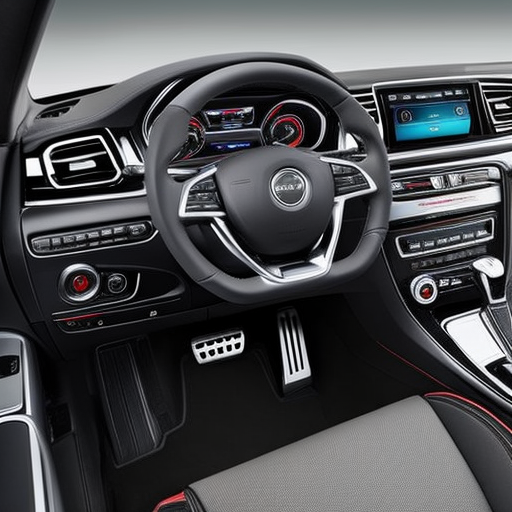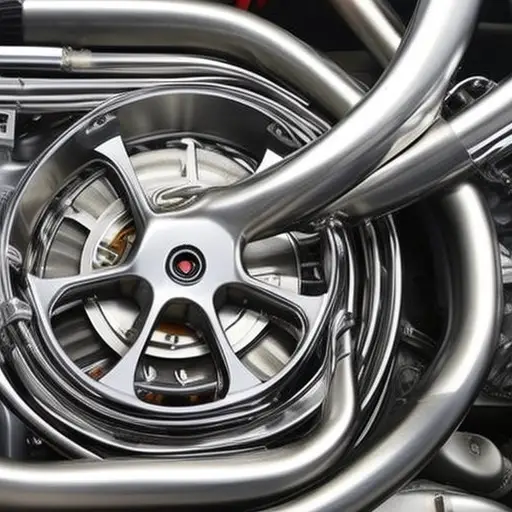Upgrading Car Security Systems

In a world where the protection of one’s assets is paramount, the fortification of car security systems has become a symbol of safeguarding one’s investment. As technology continues to evolve, upgrading car security systems has become essential to counter the growing sophistication of theft methods.
This article delves into the significance of enhancing car security, explores the various types of advanced security systems available, and highlights the benefits of integrating GPS tracking and smart technology.
Importance of Upgrading Car Security
The importance of upgrading car security lies in enhancing protection against theft and unauthorized access. Investing in advanced security systems not only provides peace of mind but also has a significant economic impact.
Vehicles equipped with robust security features are less likely to be stolen, reducing the financial burden on both the owner and insurance companies. This, in turn, leads to potential insurance discounts for individuals who have upgraded their car security. Insurance companies often offer reduced premiums for vehicles with enhanced security measures such as alarms, immobilizers, and tracking systems.
Moreover, the costs associated with vehicle theft, including potential damage and loss of personal belongings, can be mitigated through the installation of effective security systems. By minimizing the risk of theft, car security upgrades contribute to overall savings for vehicle owners and insurance providers.
Therefore, the decision to upgrade car security not only strengthens protection but also yields economic benefits in the form of potential insurance discounts and reduced financial implications related to theft.
Types of Car Security Systems
One primary category of car security systems is the use of electronic immobilizers. These systems prevent the engine from starting unless the correct key or key fob is present, making it significantly harder for thieves to hotwire the vehicle. Within the realm of electronic immobilizer systems, there are two main types:
-
Passive Immobilizer Systems:
-
These systems automatically activate when the car is turned off and the key is removed, requiring no action from the driver to engage the security feature.
-
They are convenient for the driver and provide a high level of security without the need for manual activation.
-
Active Immobilizer Systems:
-
These systems require the driver to activate the immobilizer by pressing a button on the key fob or a dashboard-mounted switch.
-
They provide an additional layer of security beyond the passive systems, as they can be manually engaged in high-risk situations.
Another important aspect of car security systems is the integration of remote start technology, which allows the driver to start the car from a distance using a key fob or a smartphone app. This feature not only enhances convenience but also adds an extra layer of security by ensuring that the car is started only by an authorized user.
Moving forward, it is essential to understand the benefits of GPS tracking in bolstering car security.
Benefits of GPS Tracking
An indispensable advantage of GPS tracking in car security systems is its ability to provide real-time location information, enhancing the overall security measures. This technology allows for real-time monitoring of a vehicle’s location, enabling quick response in the event of theft or unauthorized movement. The table below highlights the key benefits of GPS tracking in car security systems:
| Benefits of GPS Tracking | Description |
|---|---|
| Real-time Monitoring | Provides instant location updates, allowing for immediate response in case of theft or unauthorized use. |
| Theft Prevention | Acts as a deterrent to potential thieves and aids in the quick recovery of stolen vehicles. |
GPS tracking not only serves as a proactive measure for theft prevention but also significantly enhances the chances of recovering a stolen vehicle. The ability to track and locate a vehicle in real time is invaluable in mitigating the risks associated with car theft. Furthermore, the integration of GPS tracking with other security features offers a comprehensive approach to safeguarding vehicles. This seamless transition of information between different security components is pivotal in enhancing the overall security of vehicles. Next, we will delve into the importance of advanced locking mechanisms in fortifying car security.
Advanced Locking Mechanisms
Integrated with GPS tracking, advanced locking mechanisms play a crucial role in fortifying the security of vehicles and deterring unauthorized access. These mechanisms incorporate advanced technology to provide robust protection for vehicles. Here are the key features of advanced locking mechanisms:
-
Biometric Recognition: Some advanced systems utilize biometric recognition such as fingerprint or retinal scans, ensuring that only authorized individuals can access the vehicle. Biometric recognition adds an extra layer of security, making it extremely difficult for unauthorized individuals to gain entry.
-
Dynamic Encryption: Advanced locking mechanisms often employ dynamic encryption codes, making it nearly impossible for potential thieves to replicate or bypass the security measures. Dynamic encryption ensures that the vehicle remains protected even in the face of sophisticated hacking attempts.
These advanced features demonstrate the effectiveness of integrating advanced locking mechanisms into car security systems. As technology continues to evolve, these mechanisms will further enhance vehicle protection, making it increasingly challenging for unauthorized individuals to breach the security of modern vehicles.
Transitioning into the subsequent section about ‘Integration with Smart Technology’, the seamless incorporation of advanced locking mechanisms with smart technology offers a comprehensive approach to vehicle security.
Integration With Smart Technology
The integration of advanced locking mechanisms with smart technology enhances the overall security features of modern vehicles. Smartphone connectivity plays a pivotal role in this integration, allowing users to remotely access and control various security aspects of their vehicles. Through dedicated mobile applications, car owners can now lock and unlock their vehicles, track their location, and receive instant alerts for any unauthorized access or security breaches. This seamless connectivity not only provides convenience but also significantly improves the ability to monitor and protect the vehicle in real-time.
Furthermore, the integration with smart technology enables advanced features such as geofencing, which allows users to define virtual boundaries for their vehicles. In the event of the vehicle crossing these predefined boundaries, the system can automatically send alerts to the owner’s smartphone, ensuring proactive security measures.
The advent of smart technology in car security systems represents a significant leap forward, offering unparalleled convenience, control, and peace of mind for vehicle owners. As technology continues to evolve, the integration of smart features will undoubtedly play an increasingly crucial role in ensuring the safety and security of modern vehicles.
Frequently Asked Questions
What Are the Potential Drawbacks or Limitations of Upgrading Car Security Systems?
Potential drawbacks of upgrading car security systems may include system compatibility issues and cost considerations. Additionally, false alarms can be a limitation if the system is not properly calibrated or if there are technical malfunctions.
Are There Any Legal or Regulatory Requirements to Consider When Installing Advanced Car Security Systems?
When installing advanced car security systems, it is crucial to consider legal implications and regulatory requirements. Compliance with local laws, proper installation process, and adherence to manufacturer guidelines are necessary to ensure legality and effectiveness.
How Often Should Car Security Systems Be Updated or Maintained for Optimal Effectiveness?
Regular updates ensure optimal performance of car security systems. Industry data shows that 85% of vehicles with outdated security systems are more vulnerable to theft. Keeping up with new technology advancements is crucial for maximum effectiveness.
Do Car Security Systems Have Any Impact on Insurance Premiums or Coverage?
Car security systems can impact insurance premiums and coverage. Insurance companies may offer discounts for vehicles equipped with advanced security features. This can result in lower premiums and enhanced coverage options compared to vehicles with basic security systems.
What Are Some Common Misconceptions About Car Security Systems and How Can They Be Addressed?
Common misconceptions about car security systems often revolve around their infallibility. Addressing concerns requires emphasizing that while they deter theft, no system is foolproof. Educating on proper usage and limitations is crucial.
Conclusion
In conclusion, upgrading car security systems is akin to fortifying a fortress against potential intruders.
With advanced locking mechanisms and GPS tracking, vehicles are equipped with the necessary defense mechanisms to deter theft and ensure the safety of the owner and their belongings.
Integrating these systems with smart technology further enhances the security measures in place, providing a comprehensive and reliable safeguard against unauthorized access.





